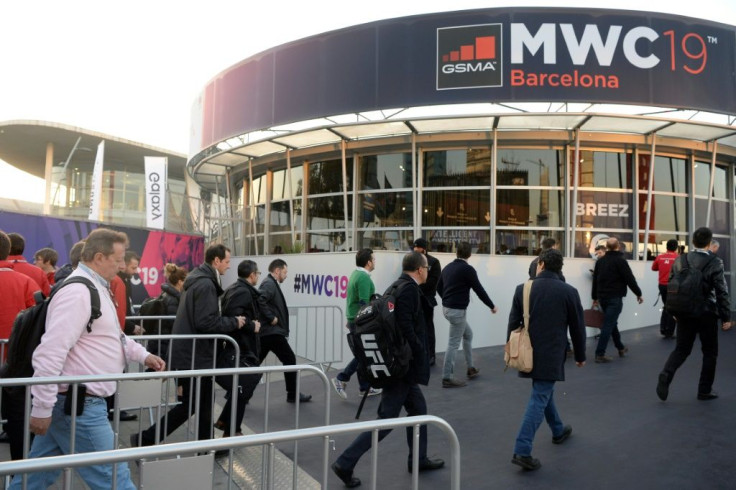Scaled-down Mobile Congress Returns To Spain
A smaller version of the world's biggest mobile fair opens Monday in Spain under tight virus controls, with top firms avoiding an in-person presence after the pandemic derailed last year's edition.
The four-day Mobile World Congress (MWC), one of the first big technology conferences staged in Europe since the start of the pandemic, comes as global smartphone sales are rebounding after slumping in 2020 due to the economic havoc caused by the health crisis.
It will take place both in-person at Barcelona's main conference centre as well as in digital form, with a live performance by US rock legend Jon Bon Jovi and an online appearance by tech billionaire Elon Musk.
Many major firms like Samsung, the world's top smartphone maker, Nokia, Google and Facebook have pulled out of the in-person event, citing virus concerns although some will take part virtually.
China's beleaguered Huawei, whose smartphone business has been battered by US sanctions, will be the biggest firm with a physical presence at the show.
"It is quite evident that the show will be vastly different from previous years," Mats Granryd, director general of the industry association that stages the congress, the GSMA, told AFP. "It won't have the same buzz as before."
Unlike in other years, no major phonemaker is scheduled to present a new flagship device at the event, although some small Chinese and European firms are expected to unveil new phones.
The event -- which is usually held in February -- will occupy just three halls of the congress centre this year, compared to eight in the past.
The GSMA has limited attendance to 50,000 compared with a normal attendance of around 100,000.
It expects 30,000-35,000 people to actually attend, although Granryd warned it was "very difficult" to make forecasts this year.
While participating firms were sending far fewer people to the congress those who are coming tend to be top executives, he added.
Organisers are offering Spanish residents working in 11 "key" industries such as finance a pass for the event for just 21 euros ($25), compared to several hundred euros normally.

Participants will only be allowed into the congress if they have a negative Covid-19 test result which is less than 72 hours old.
Once inside they must wear medical-grade FFP2 face masks at all times and follow a one-way walking system.
New York-based Sascha Segan, the lead mobile analyst at US tech magazine PCMag, has called this year's congress a "Zombie show".
He will skip the event for the first time since 2006, predicting it will be "a lot emptier".
A big chunk of the attendees will be from Spain since "they are basically giving tickets away to local people", he told AFP by telephone.
This year's keynote speaker will be Musk who will address the gathering on Tuesday by video link from California.
He will discuss his planned Starlink satellite internet service which will provide wireless connections to places where access has been unreliable or not possible.
The other key themes at the event include the global rollout of blazing fast 5G wireless networks and the surge in demand for wearables and telehealth due to the pandemic.
One of the non-tech highlights will be a live show by Jon Bon Jovi, one of three artists set to perform at the event.
Global smartphone sales fell by 5.9 percent in 2020 to a total of 1.29 billion units, its fourth straight year of declines, according to research firm IDC.
But IDC forecasts they will increase by 7.7 percent this, and continue to rise until 2025 due to pent-up demand for a new device in rich nations and a "faster recovery than we thought" in key emerging markets, said senior IDC researcher Ryan Reith.
"We still believe the smartphone market has a lot of room to grow," he told AFP.
© Copyright AFP 2024. All rights reserved.





















